
Last week, NumbersUSA sent a team to the Texas State Fair grounds in Dallas, TX, site of the largest Earth Day exposition in the world, EarthX. We presented our new study on Texas sprawl, and shared our exhibit with over a fifteen hundred people, most of whom were not surprised to learn that Texas has lost more open space than any other state in recent decades, mostly due to its rapid population growth which is increasingly driven by people moving into Texas from other states and other countries.
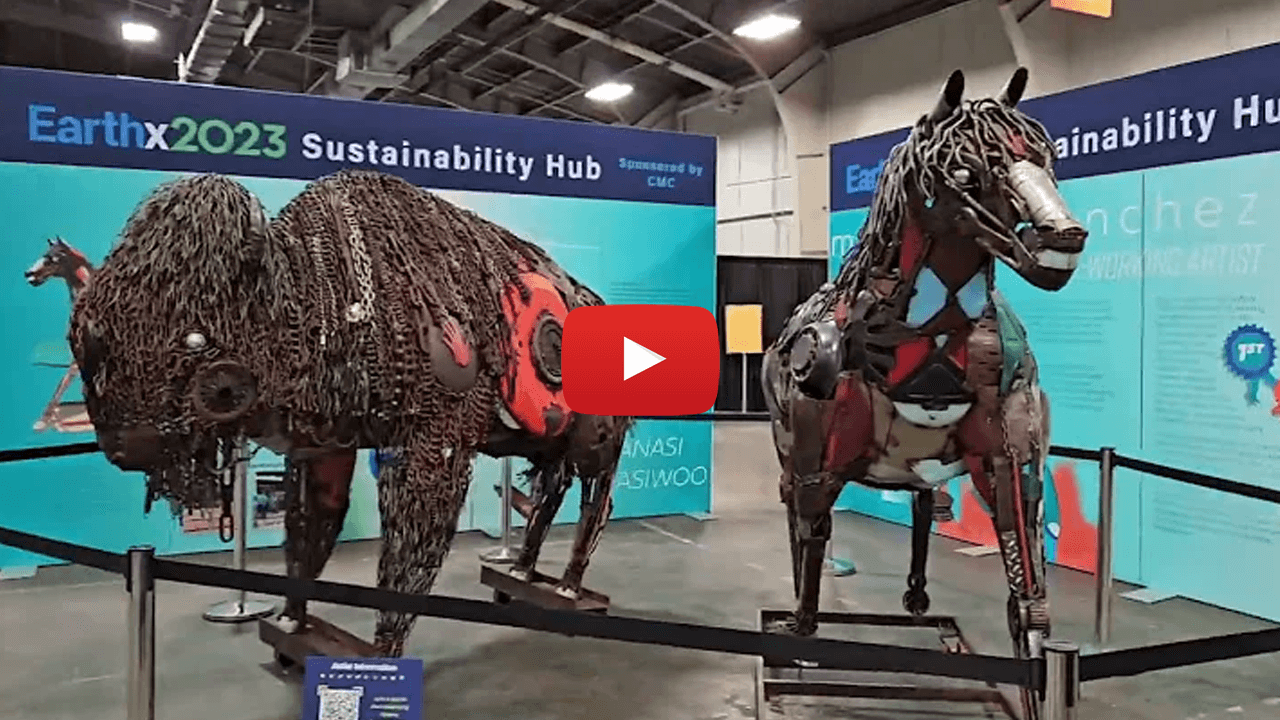
Our “provocative” presentation
On behalf of his co-authors Leon Kolankiewicz and Eric Ruark, NumbersUSA’s Founder and current Board Member Roy Beck presented “The Illusion of Limitless Texas Habitat,” at the Green Speaker Stage. The full 40-minute presentation was professionally recorded for EarthX TV, but we’ve condensed cell phone footage down to a five-minute version here:
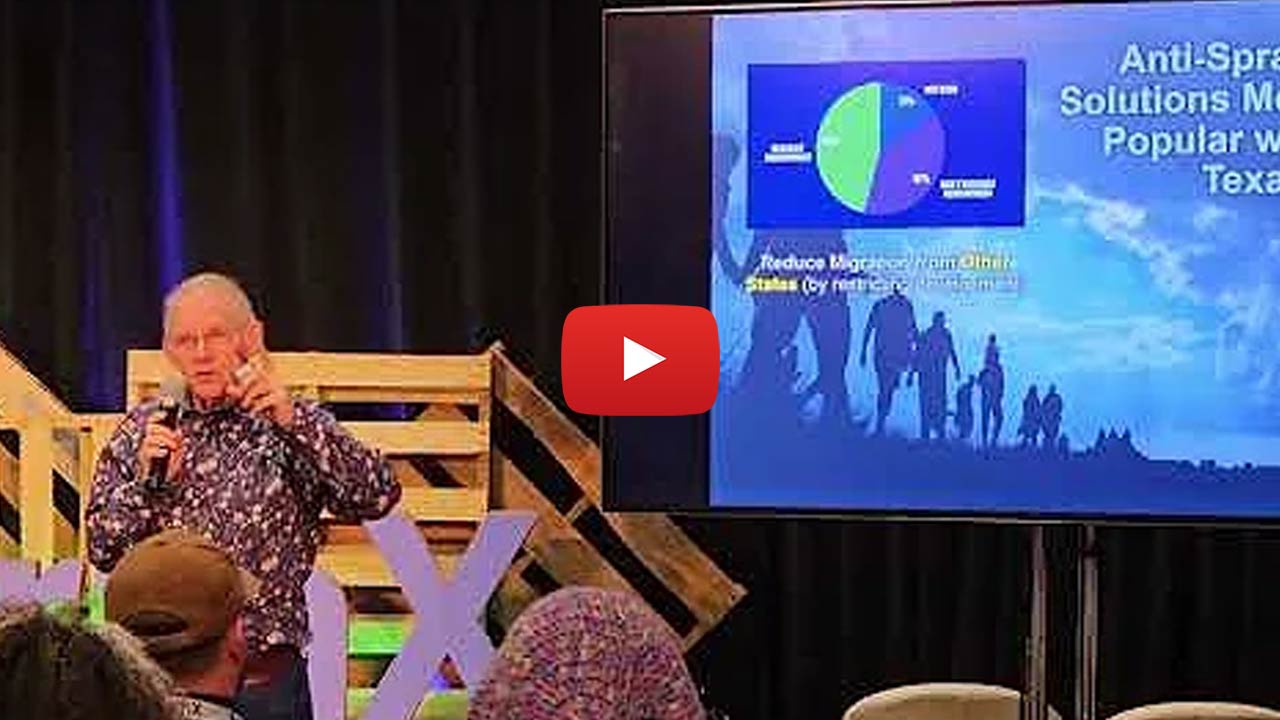
Condensed presentation
“The whole world could move here,” Roy says, “but is there ecological room?” Texas, despite its size, is already running an ecological deficit, “borrowing deeply from the future as well as from other states and countries.”
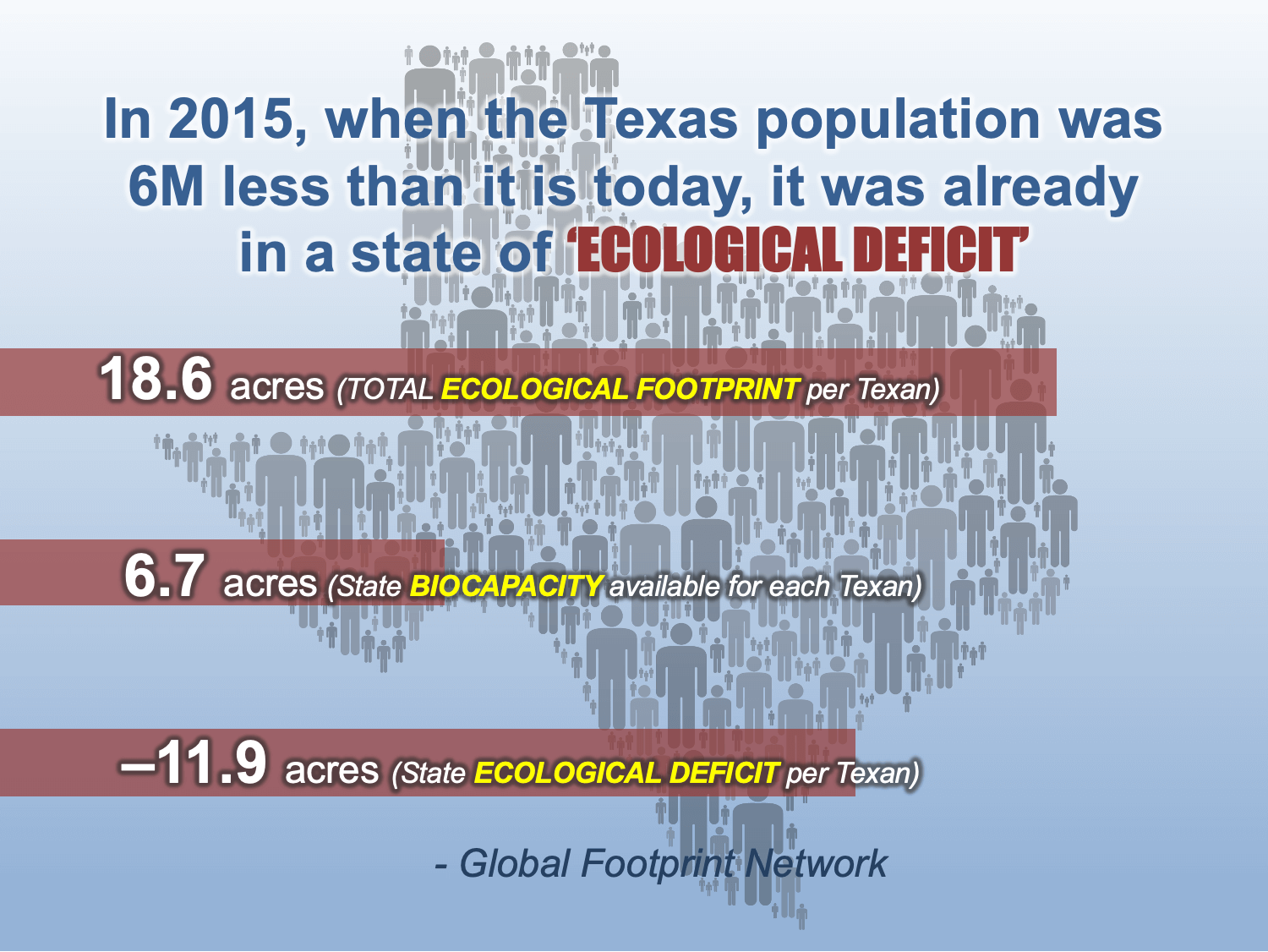
“The very health of the globe is primarily dependent upon the health of each ecoregion in the world,” Roy explained.
“When it comes to nature, if you are in a particular ecoregion, it makes a lot of difference whether the population growth or development is happening in your region or somewhere else.”
Habitat has to be protected where it exists. Like all Americans, Texans have a right to determine how big they want to be. Federal immigration policies are driving all long-term population growth in the United States, and a majority of Texans favor changes to immigration that would slow the growth down.
At the end of the presentation, the host of the Green Speaker stage, Gregory Davis, took the microphone and addressed Roy and NumbersUSA.
“It has been a pleasure having you for the many years I’ve been involved [with EarthX],” Davis said. “You are, I would say, the most provocative presenter that really makes us think.“
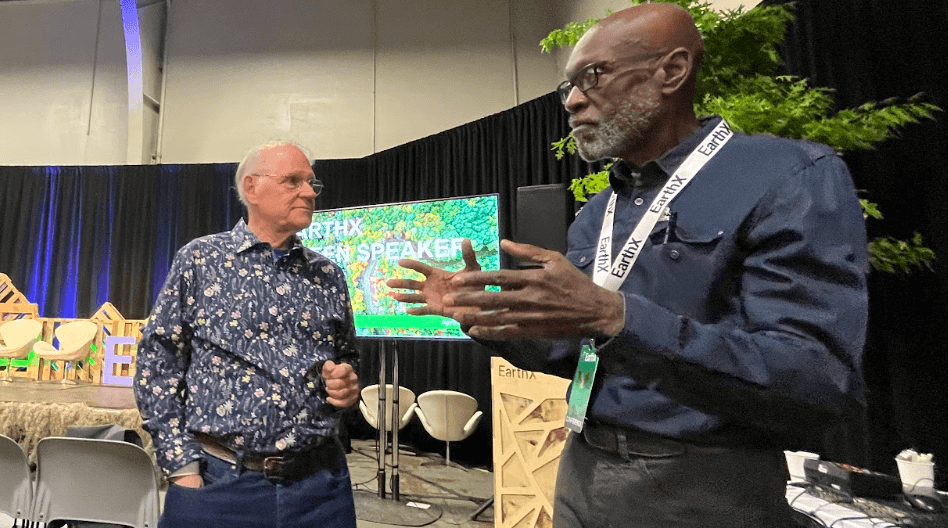
Roy Beck and Gregory Davis
“If we want to create a sustainable society, we need to reduce immigration levels.“
So said Professor Philip Cafaro of Colorado State University when he presented his own lecture, “More People Means Less Wildlife.”
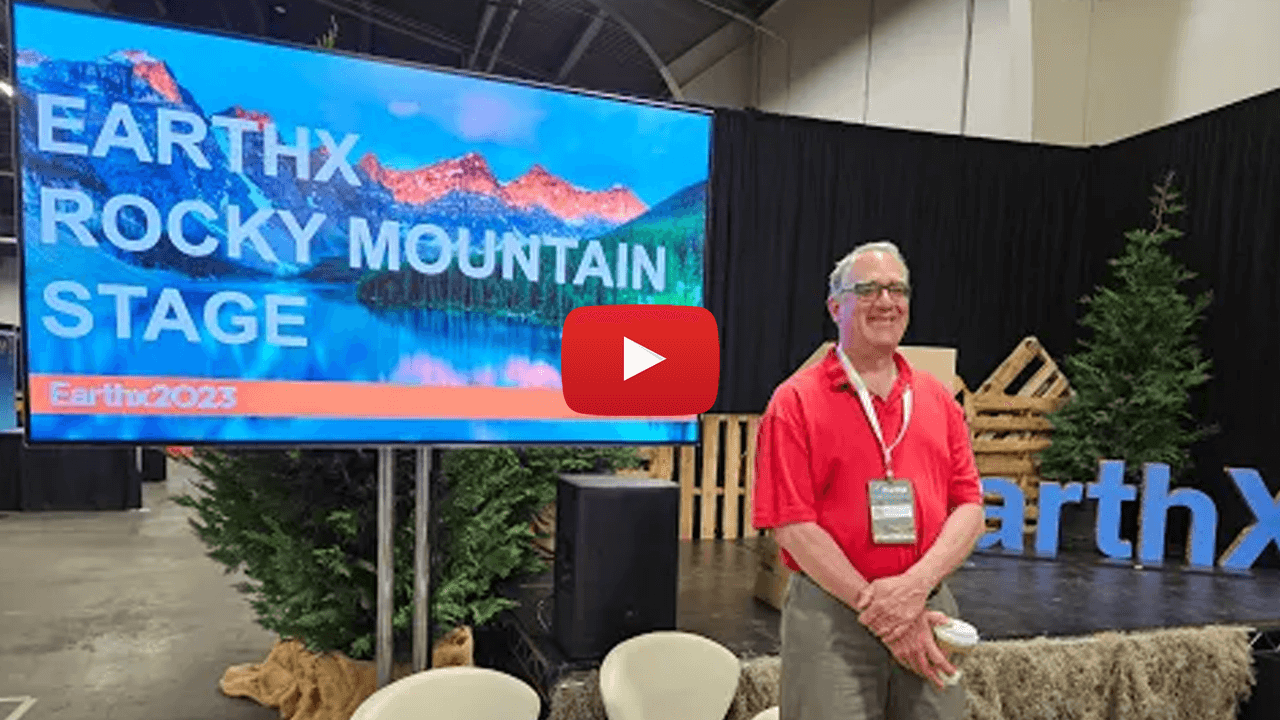
A weekend of civil discourse and engagement
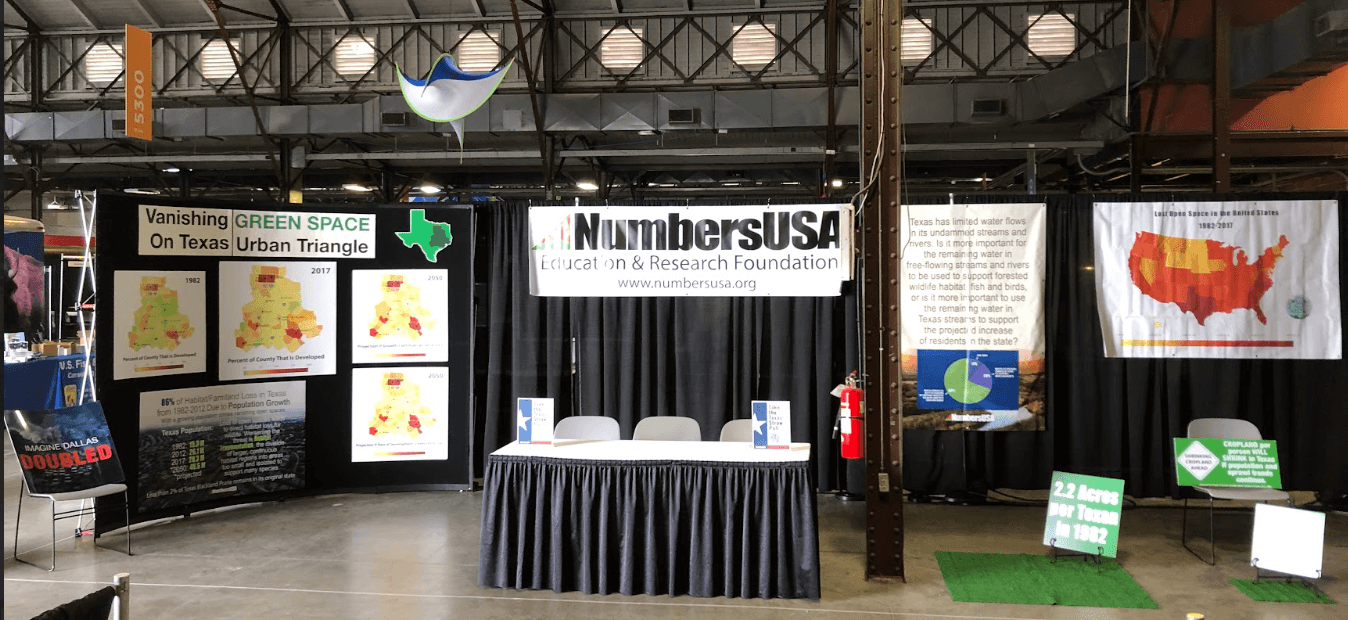
The NumbersUSA booth that Cafaro mentions in the video was open for three full days to the public, and we had hundreds of engagements with people from all over Texas, the United States, and the world. Here are a few highlights and observations:
NumbersUSA was a stand out: “Nobody else is doing what you’re doing” was a phrase we heard many times over the weekend. Almost everyone at EarthX (aside from Professor Cafaro) was there to talk about ways to mitigate the impact of population growth on the environment…without talking about population growth’s impact. Yet it was no surprise to the hundreds of people we had conversations with that Texas’ population growth was impacting human and non-human life in Texas in profound ways. We heard stories about not being able to afford a home in one’s own hometown, and losing access to the countryside as communities become more urbanized.
We choose our future: What was news to many was that most of Texas’ growth (as well as the country’s) was due not to births but to migration. Our message to them was: whatever you think of the changes from the past or the projections for the future, these are the results of policy choices made by the people we elect to represent our interests.
Demand for more studies and polling: The farmers in the booth across from us had high praise for our maps and said they hoped we would do a study of Northern California. A wildlife booth from Wyoming took our survey and said “These are exactly the questions we want asked in Wyoming!” A representative from Unity College asked if we had any needs for statistical interns. An alliance of 50 nonprofit member organizations also expressed interest.
Sustainability and justice intersect: Paul Quinn College had an exhibit about the I-345 feasibility study. The installation of the highway decimated a historic and thriving Black neighborhood. A plan to free up 240 acres around Dallas by altering the highway fell to a potential 143 acres by the time the proposal moved forward, due to increased development in the area at that time. Barbara Jordan may be fading from the memory of most Americans, but Texans know who she is and what she stood for. Multiple conversations about immigration policy turned to the subject of economic fairness. “This won’t get fixed until white Americans understand how it affects them,” one man said as he purchased a copy of Back of the Hiring Line.
Civil discourse wins: Our indefatigable intern, Wyatt Verlan, observed how important personal interactions are: “We can get the wrong idea that the internet is a good place for our message-it is important, but it definitely helps to actually be there talking to people, and defuses what would otherwise be hostile encounters and stops people from greeting restriction with flippant dismissals.” Although most were agreeable to our message, we did meet some resistance from some attendees, and we faced those difficult conversations with a civility that was returned in kind.
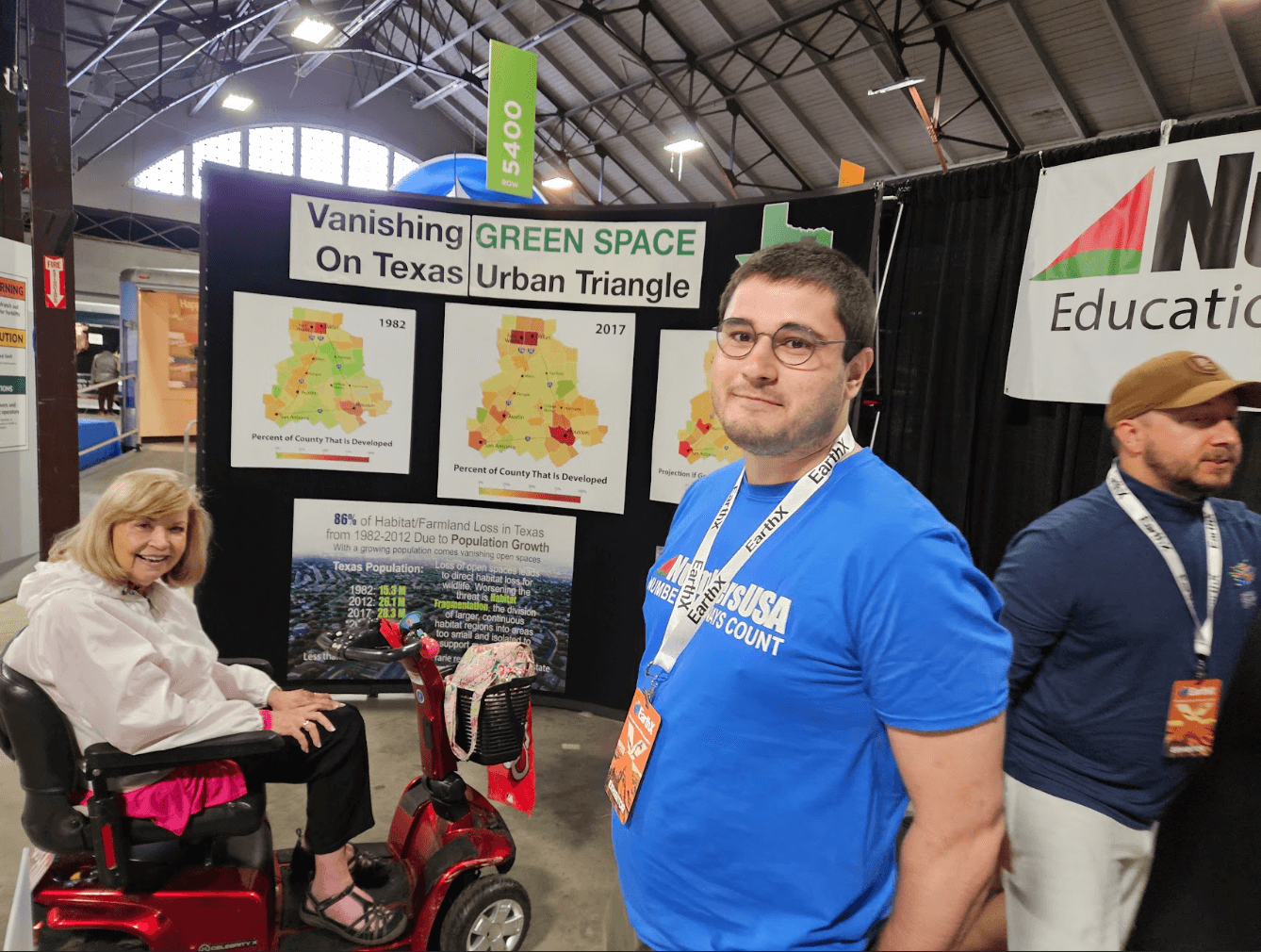
Wyatt at the booth
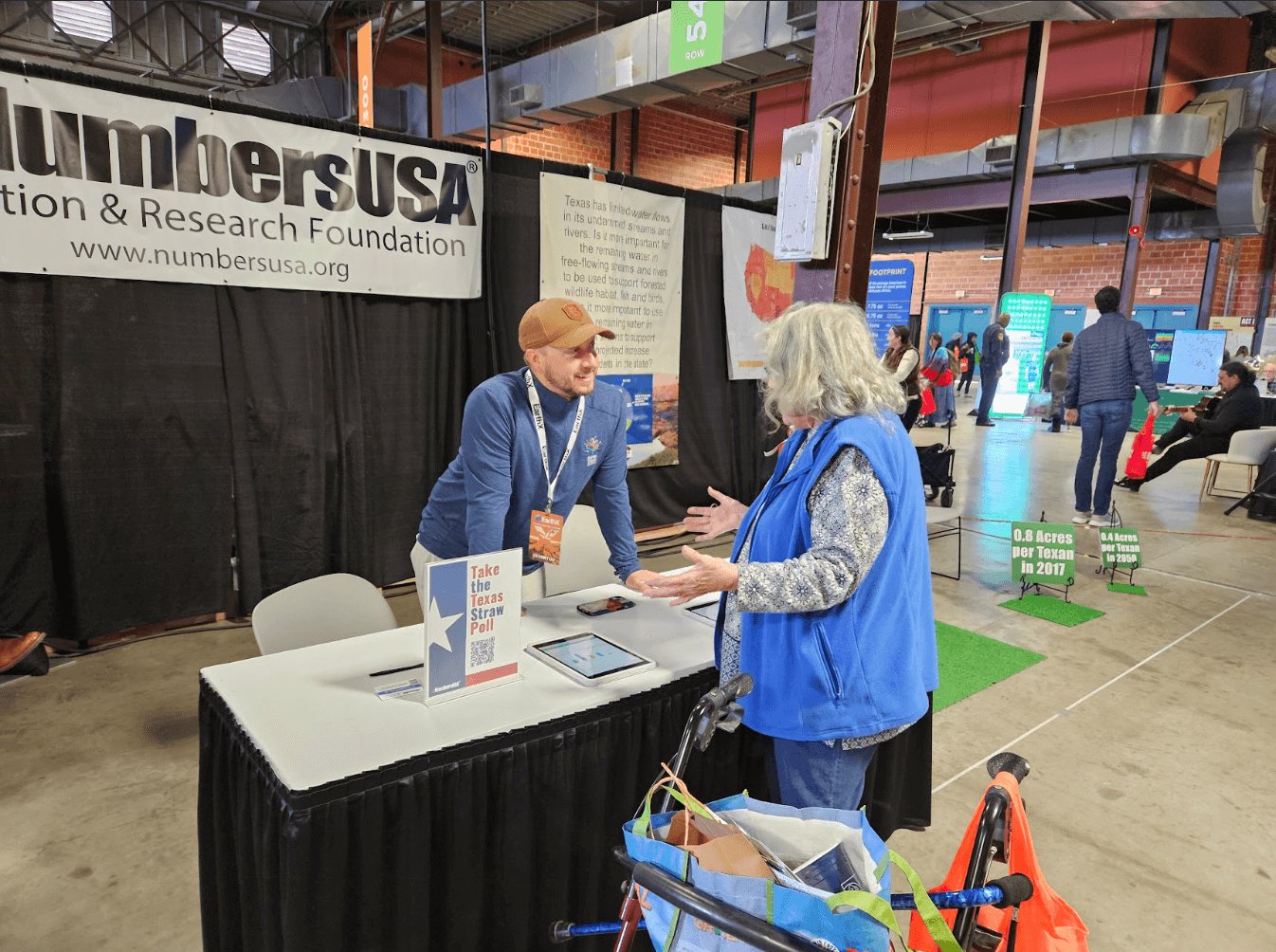
Andrew Good anchored the booth during our visit.
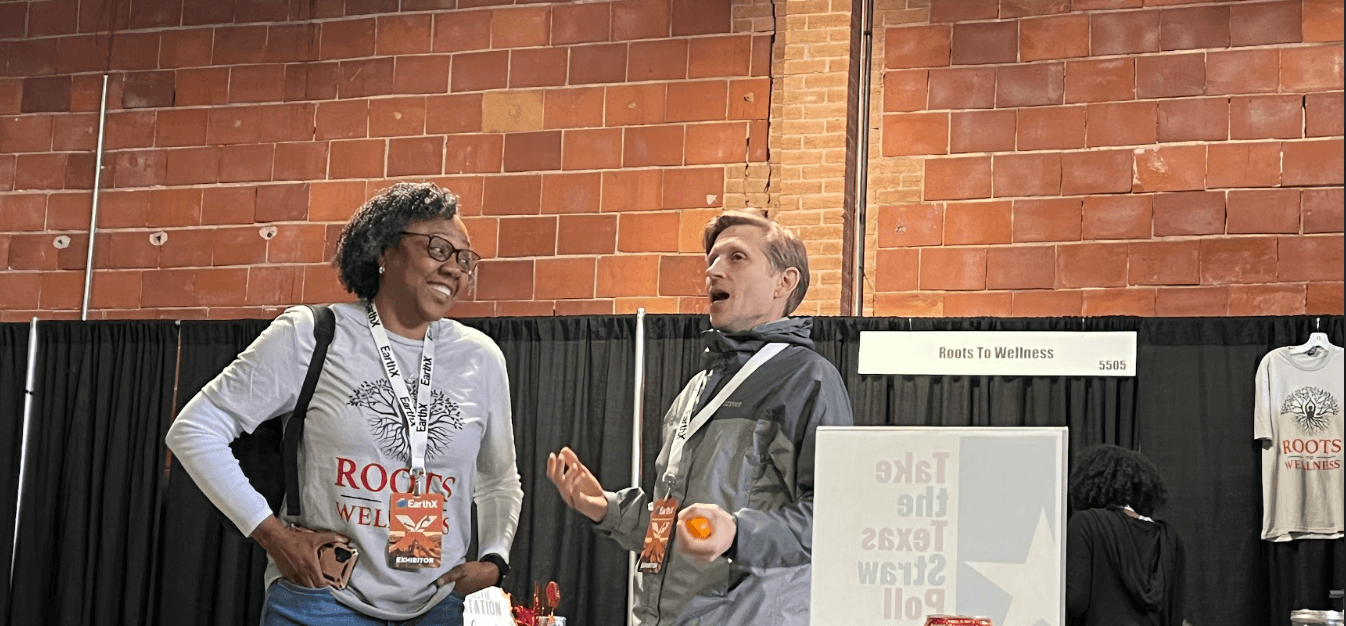
The Roots to Wellness booth across from us were game for several good conversations throughout the weekend about immigration’s impact on quality of life and economic opportunities.
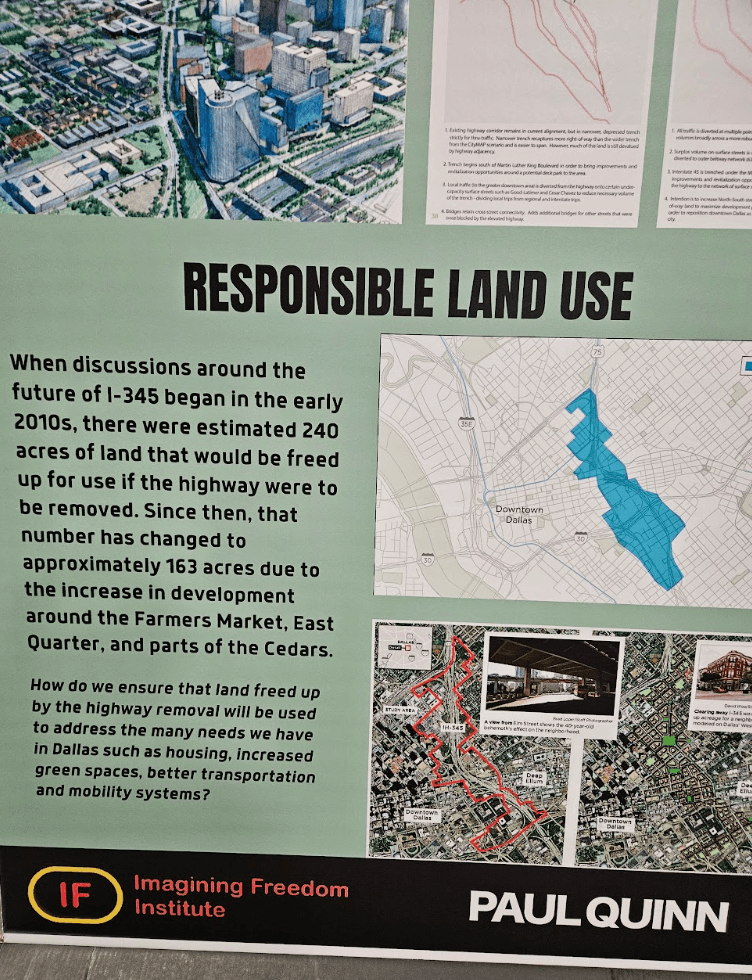
A panel from Paul Quinn College’s exhibit that points to just one of the impacts of population growth and development.
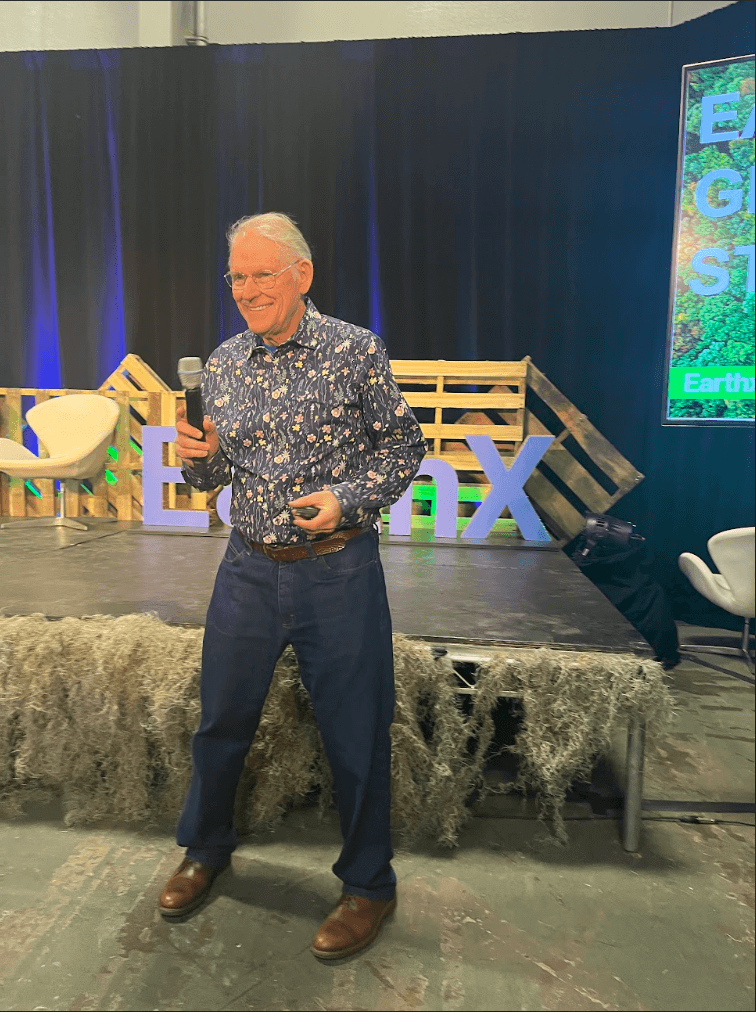
Roy at the Green Speakers Stage
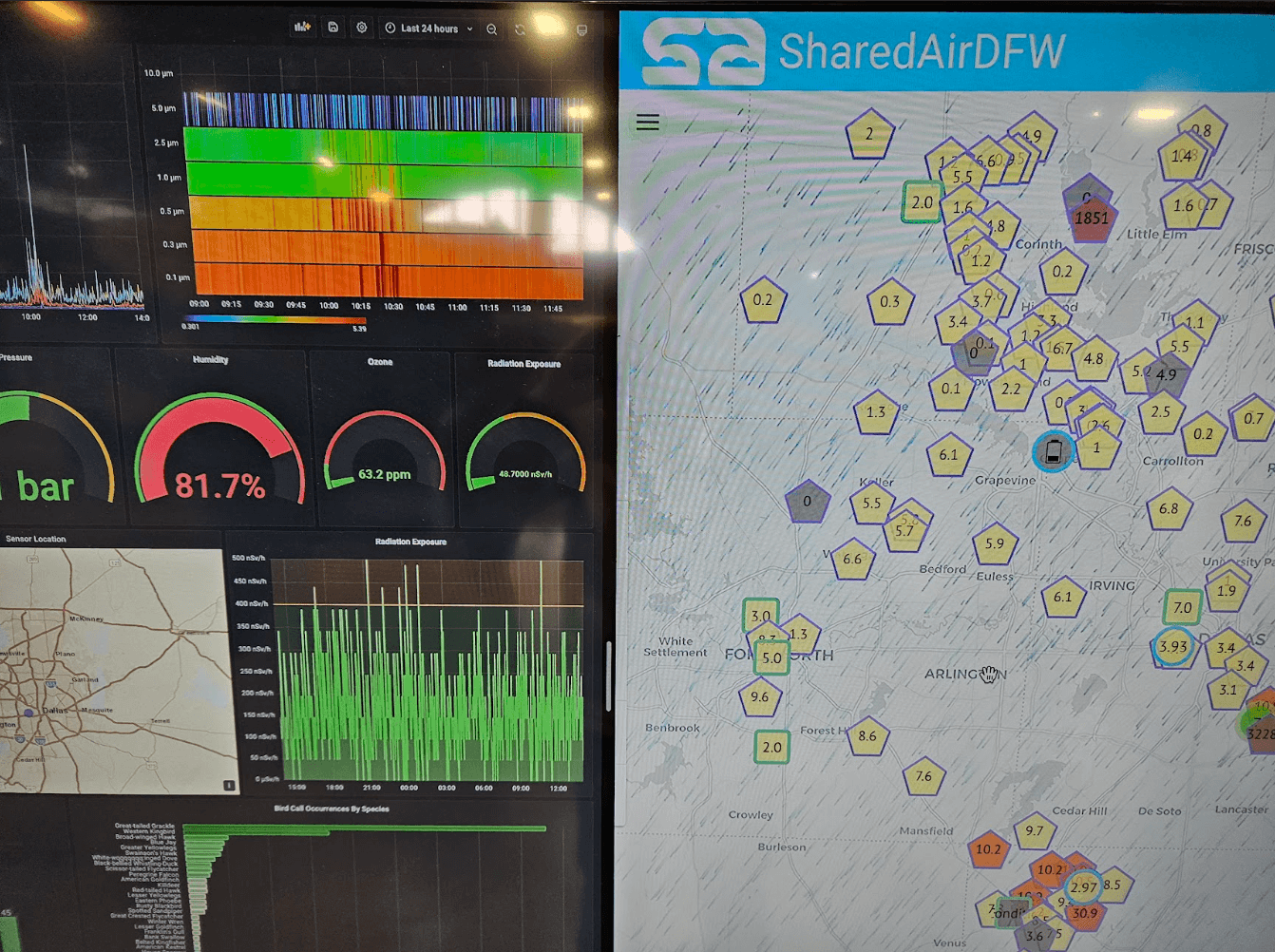
Another Paul Quinn College project; this one tracking air quality in different neighborhoods. More study will have to be done to compare air quality with overdeveloped zones.
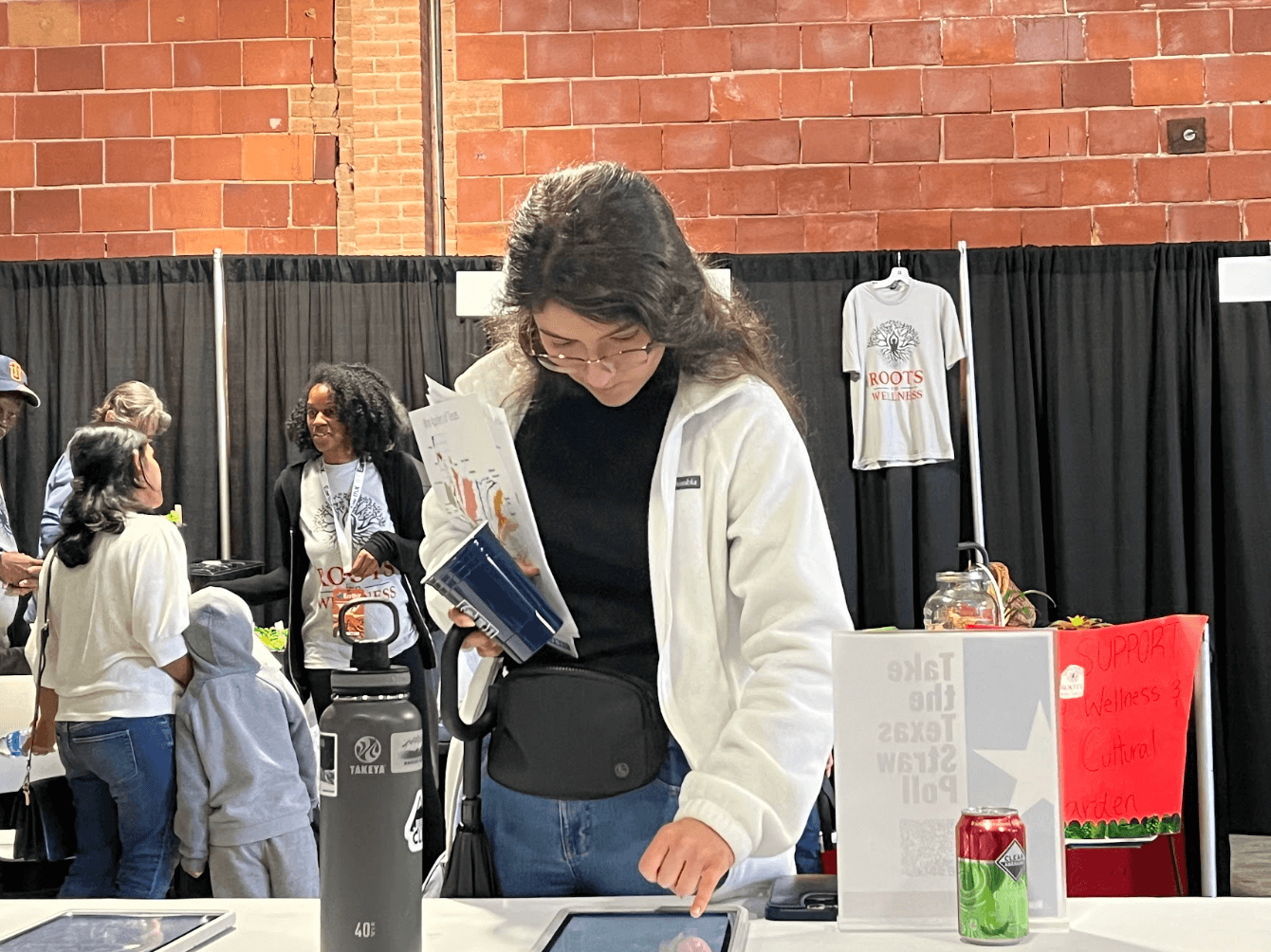
This student requested additional support materials for her own research.
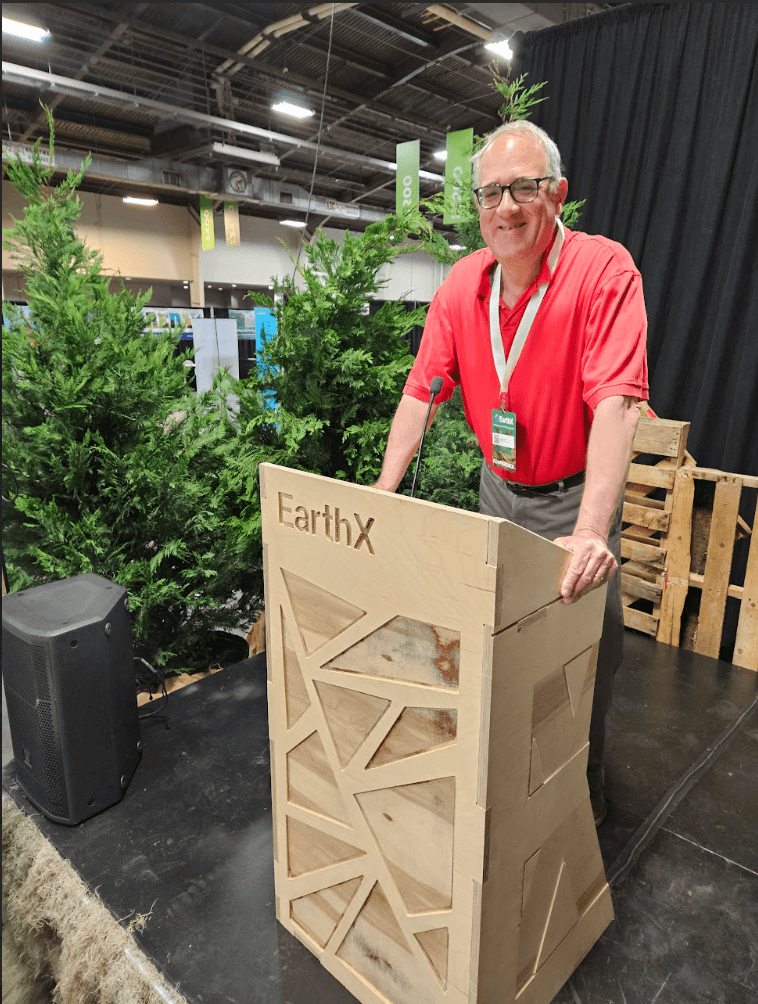
Professor Cafaro at the Rocky Mountain Stage
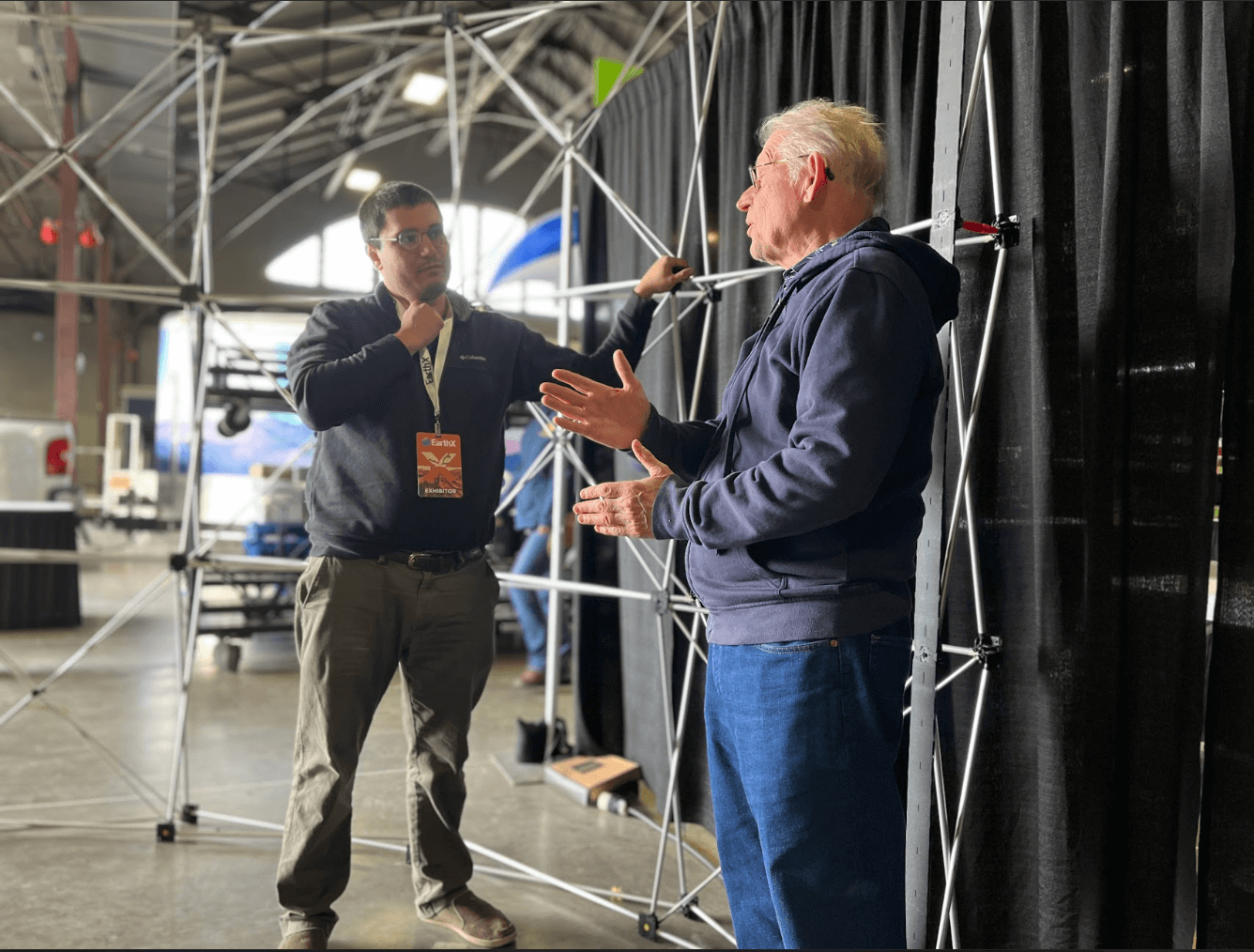
Breaking down the booth
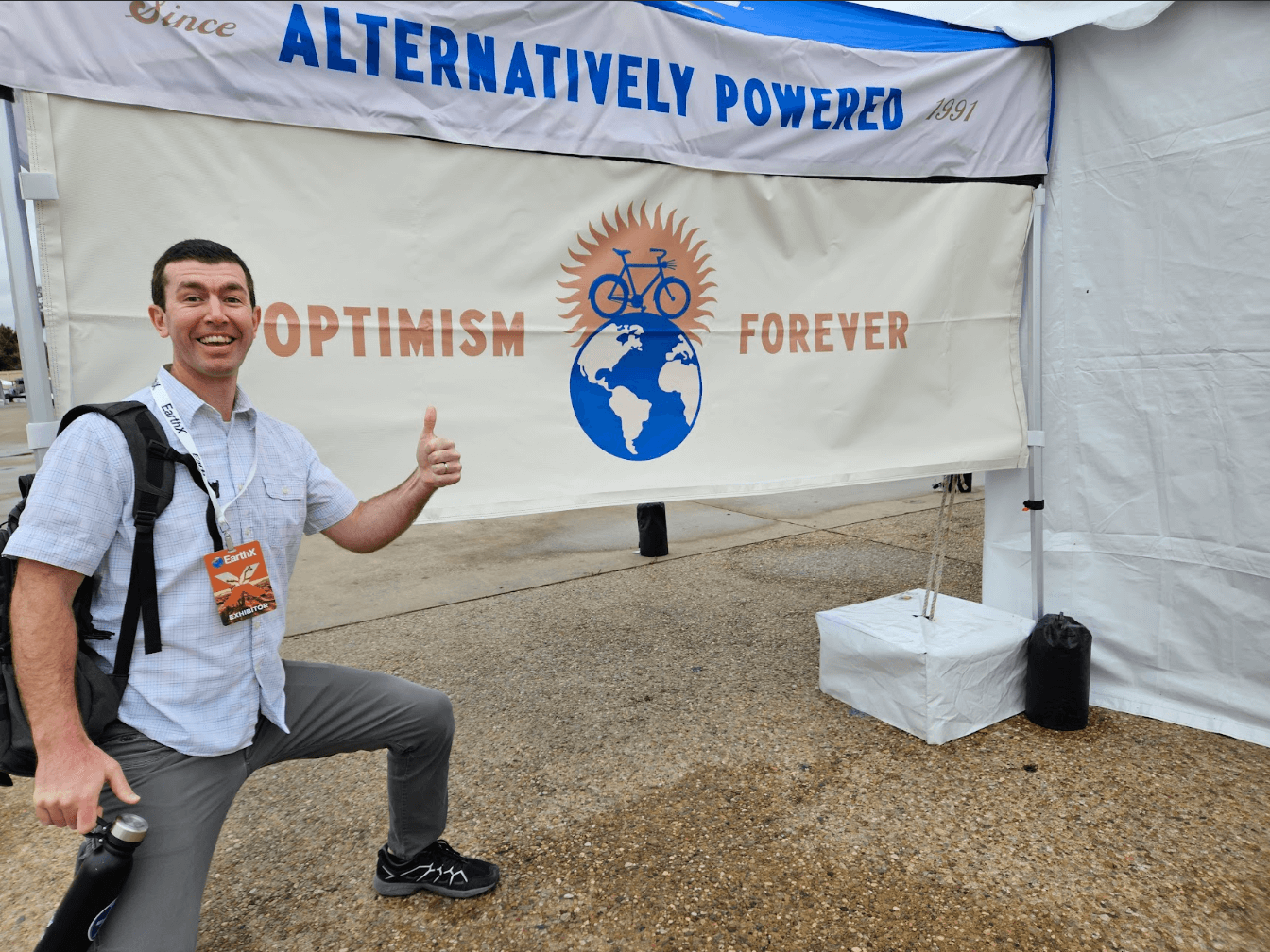
Despite a long week, Rob Harding never lost his optimism.
JEREMY BECK is a V.P., Deputy Director for NumbersUSA
Take Action
Your voice counts! Let your Member of Congress know where you stand on immigration issues through the Action Board. Not a NumbersUSA member? Sign up here to get started.
Donate Today!
NumbersUSA is a non-profit, non-partisan organization that relies on your donations to works toward sensible immigration policies. NumbersUSA Education & Research Foundation is recognized by America's Best Charities as one of the top 3% of well-run charities.
Immigration Grade Cards
NumbersUSA provides the only comprehensive immigration grade cards. See how your member of Congress’ rates and find grades going back to the 104th Congress (1995-97).